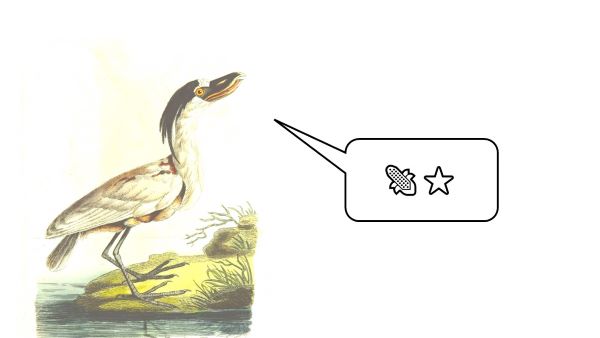Here are all the articles about Internet English that have appeared in my newsletter English in Progress about world Englishes and English language change.
March 2023
A scientist is lobbying for a protein emoji
Oklahoma uses Urban Dictionary to accept or reject custom licence plates
A new algorithm to create word lists
The rise of algospeak
This article discusses the rise of algospeak, a way of typing that allows people to get past content filters. Some good examples in the article.
Reading time: 6 minutes / RTE (Ireland)
The difference between AI and a human
If you take the time to read just one of the long reads in this newsletter, this one should be it. It does a good job at explaining the current debate on AI and Large Language Models by using analogies and introducing the humans behind the ideas. This is not a small feat, as the debate boils down to huge questions like “What is language and where does it come from?” and “What does it mean to be human?”
Reading time: 25 minutes / Intelligencer (USA)
Makers of ChatGPT were taken by surprise by its success
An interview with 4 of the people who created ChatGPT. “What I came away with was the sense that OpenAI is still bemused by the success of its research preview, but has grabbed the opportunity to push this technology forward, watching how millions of people are using it and trying to fix the worst problems as they come up.”
Reading time: 10 minutes / MIT Technology Review (archived) (USA)
A dictionary platform powered by Bitcoin
In what might be the worst idea in lexicographical history, financial expert Jack Pitts has founded a dictionary on blockchain technology. The platform includes a ‘celebrity auction’ that allows users to own and monetize word definitions.
Reading time: 3 minutes / Coingeek (USA)
February 2023
Technology to decode brainwaves
A scientist at Davos warns that AI means technology to decode what people are thinking will be available sooner than we think.
Large Language Models threaten linguistic diversity
“It’s no surprise that ChatGPT’s default functionality seems to prioritise forms of English writing developed by white people. White English-speaking men have long dominated many writing-intensive sectors, including journalism, law, politics, medicine, computer science and academia.”
January 2023
This piece from Vox discusses the evolution of humour on the Internet, and while doing so also gives a wonderful overview of Internet English past, from “the narwhal bacons at midnight.” and “epic bacon” to “gamergate” and “alt-right”.
